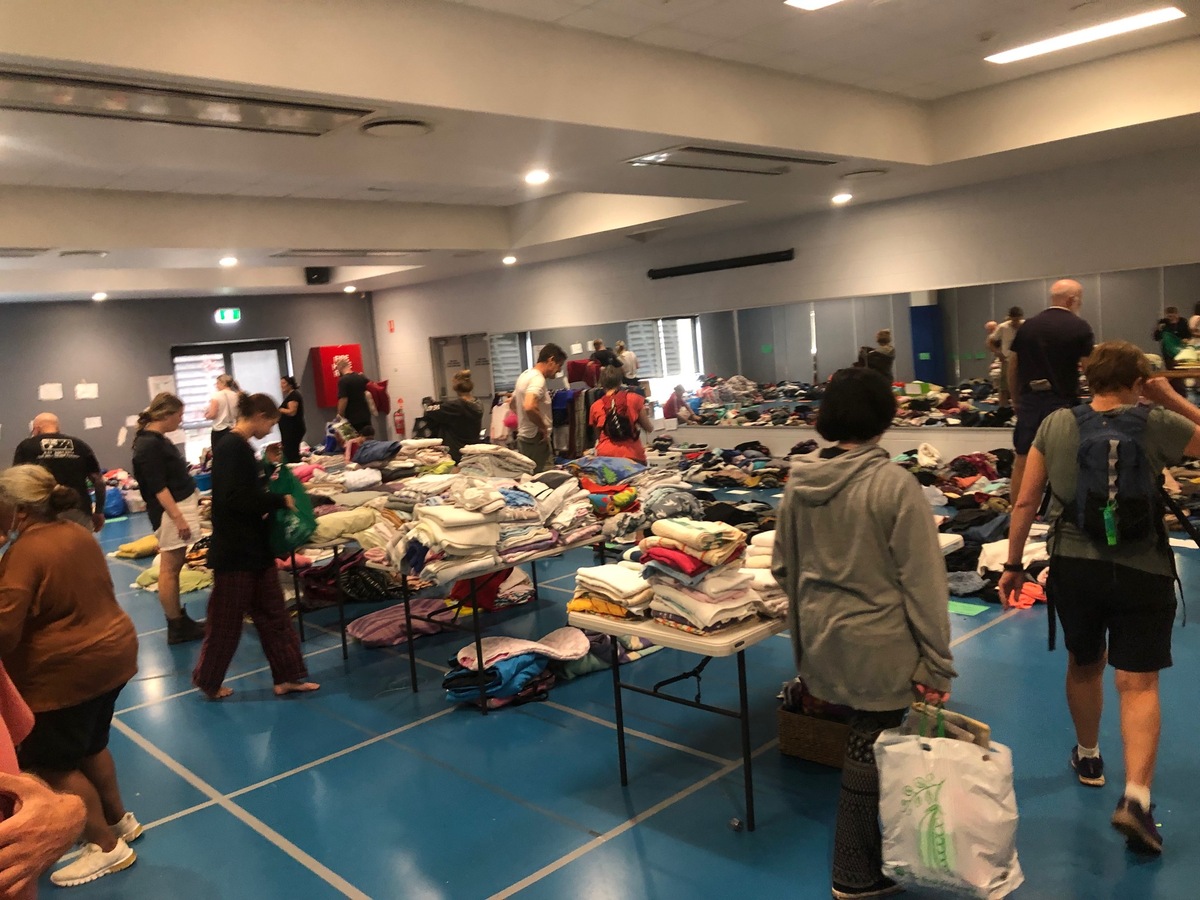New research reveals hidden backbone of Northern Rivers flood recovery: women’s leadership
18 June 2025, 11:40 PM
 The evacuation centre donation pile at GSAC in March 2022
The evacuation centre donation pile at GSAC in March 2022A groundbreaking new study published in the journal Women's Health is bringing long-overdue recognition to the women who played a pivotal role in the Northern Rivers’ recovery from the catastrophic 2022 floods.
The research, led by the University Centre for Rural Health Northern Rivers (UCRH), documents how women across the region stepped into leadership roles, filling critical gaps left by formal disaster responses and sustaining the health and wellbeing of their communities through long-term recovery efforts.
The study – Governance, collaboration and community organising in rural Australia: A case study of women’s experiences and contributions to community health and well-being in the Northern Rivers, Australia floods – was authored by UCRH researchers Dr Rebecca McNaught, Dr Jo Longman and Emma Pittaway, alongside Loriana Bethune from Gender and Disaster Australia and Dominica Meade from the University of Melbourne.
Beyond the headlines: the invisible labour of recovery
While media coverage at the time focused on dramatic rescues, generally undertaken by male volunteers, this research uncovers a parallel and largely invisible story: women quietly leading complex, sustained recovery efforts from their homes, community halls, and online networks.
“While the media spotlight was on the ‘tinny army’, women were coordinating food relief, managing donation hubs, organising volunteers, and providing emotional support to neighbours and strangers alike,” said lead author Dr Rebecca McNaught. “They were doing this while also caring for families, managing their own flood impacts, and often without any formal recognition or support.”
The study draws on interviews with community members, government and non-profit representatives, and transcripts from the NSW Government’s flood response inquiry. It paints a compelling picture of gendered leadership in disaster recovery – one that is collaborative and community-driven.
A gendered gap in disaster governance
The research confirms a systemic issue in disaster governance: the persistent undervaluing of women’s contributions. Despite their central role in community recovery, women community organisers were often excluded from formal decision-making processes and left to navigate bureaucratic systems alone.
“This is not just a Northern Rivers issue – it’s a national one,” said co-author Loriana Bethune from Gender and Disaster Australia. “Across Australia, we see the same pattern: women step up in times of crisis, but their leadership is unpaid, unsupported, and unacknowledged. This research is a call to action to change that.”
“This research shows that if we want resilient communities, we need to start by recognising and resourcing the people already doing the work – and that means local women.”
The study also found that many women paid a personal price for their leadership, experiencing burnout, stress, and negative impacts on their own health and well-being.
Lessons for a climate-challenged future
As climate-related disasters become more frequent and severe, the authors argue that Australia must rethink who it sees as leaders in disaster response and recovery. The Northern Rivers experience offers valuable lessons for other regions across NSW and the country.
“We need to build disaster systems that recognise and support the leadership that already exists in communities – especially the leadership of women,” said Dr McNaught. “That means funding grassroots initiatives, including women in planning and governance, and valuing their work as essential to recovery.”
The authors are calling on local, state and federal governments to embed gender-inclusive, community-led approaches into disaster planning and recovery frameworks. They also urge further research into supporting the health and well-being of women organisers, whose contributions are vital but often come at a personal cost.
About the study
The study was conducted by researchers from UCRH, based in Lismore, in collaboration with Gender and Disaster Australia and the University of Melbourne. It is one of the first peer-reviewed studies to focus specifically on women’s leadership in the 2022 Northern Rivers flood recovery.
The full article is available online as part of the June 2025 issue of Women's Health.

